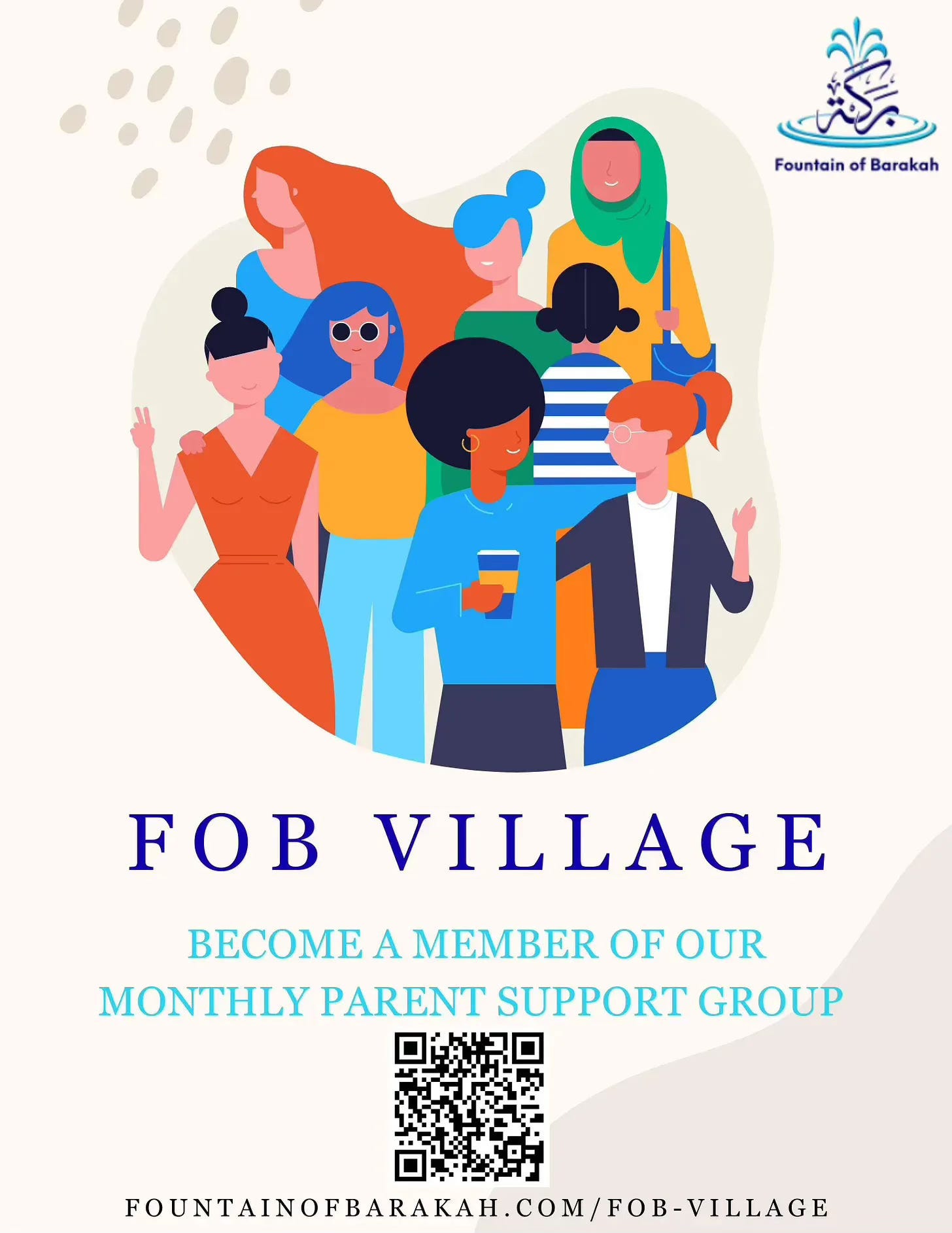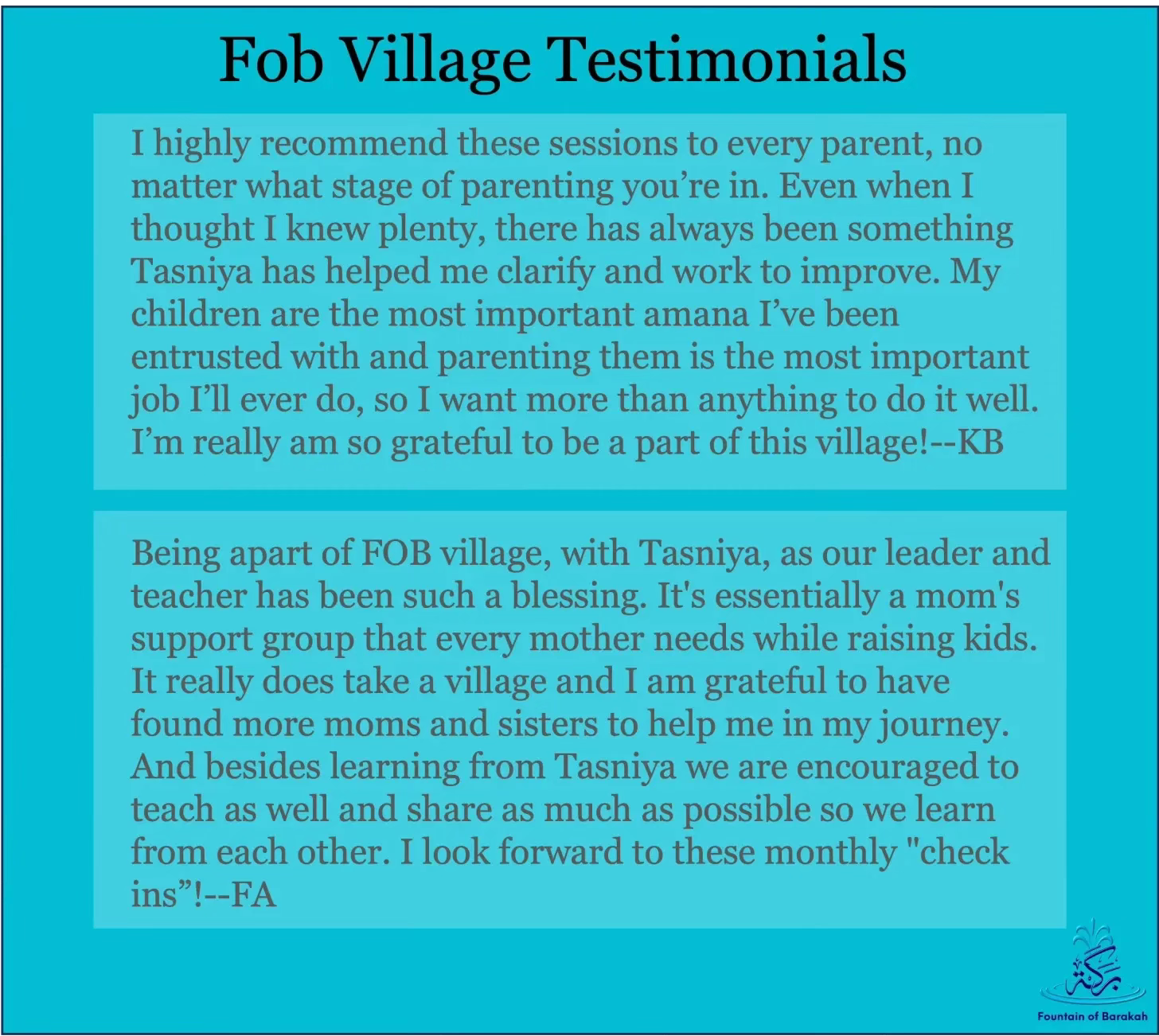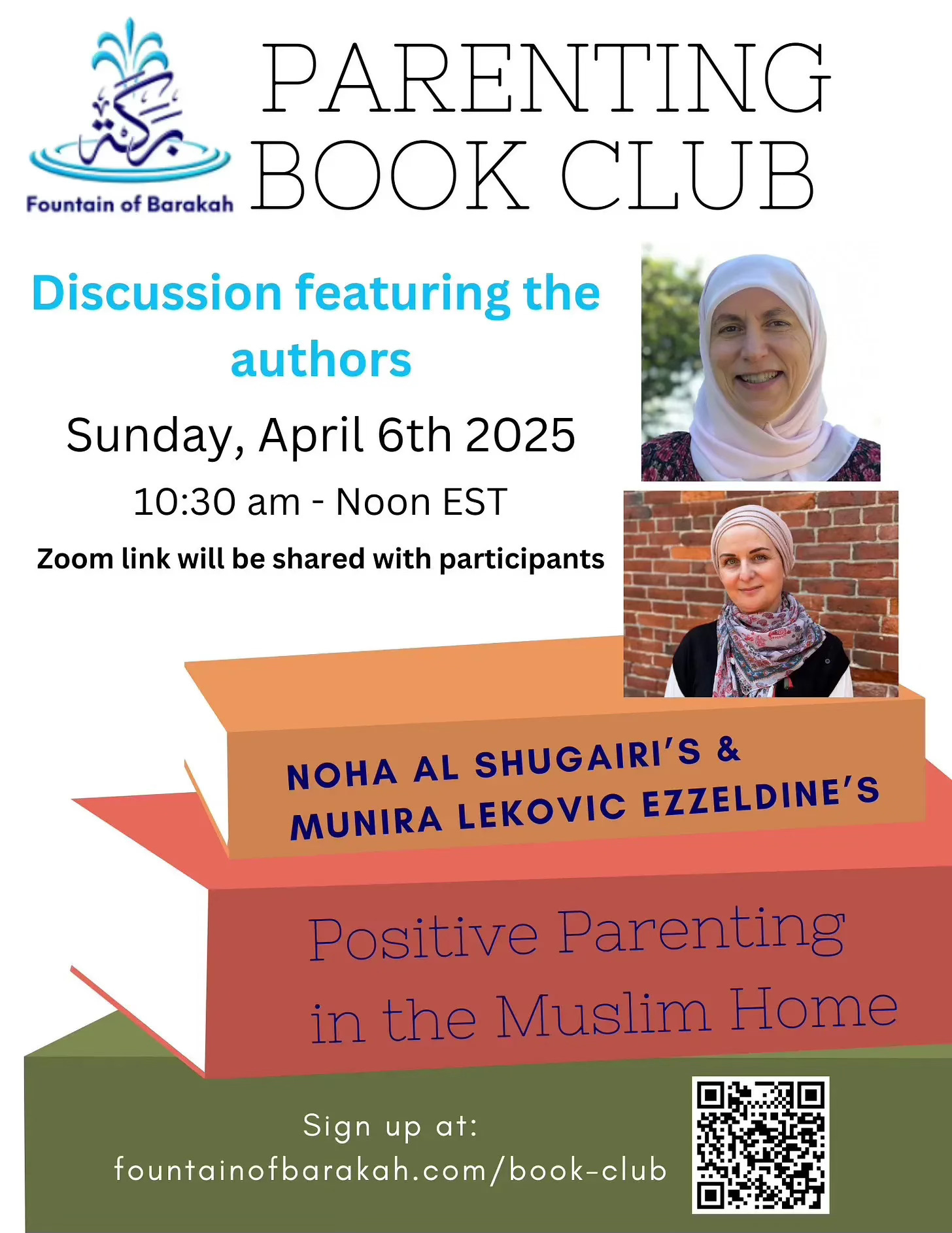As-salamu alaykum and Ramadan Mubarak!
In addition to running and reading, another of my hobbies is gardening. Both my parents love gardening and have green thumbs, so I grew up surrounded by plants. While I’ve always enjoyed spending time in nature, I didn’t realize my passion for gardening until a couple of years ago when we bought our first home, which came with plenty of yard space. Gardening has benefited me physically, as I dig and fill beds with soil, as well as mentally, since I find it a meditative and calming activity. Most importantly, it has been a means through which Allah has taught me profound lessons about the reality of life. It’s impossible to witness how a lifeless seed transforms into a life-giving plant without seeing the Creator in the process.

Gardening and Parenting: A Profound Connection
Reflecting on the process of gardening, I’ve realized it has many similarities to parenting. There is a popular saying among gardeners: “The best fertilizer is the gardener’s shadow.” This suggests that for a garden to thrive, you must spend time in it. Regular presence allows a gardener to identify diseased plants early, treat them before the disease spreads, and detect pests before they cause too much damage. Gardening is quite literally a hands-on activity that requires time, patience, and attentiveness.
“The best fertilizer is the gardener’s shadow.” - Unknown
This is strikingly similar to the mindful parenting we advocate through Fountain of Barakah and strive to implement in our own family. We aim to be present with our son, ensuring that we are his primary relationship. Our goal is to cultivate a strong, meaningful connection so that, even as he grows and becomes more independent, he will still choose to spend time with us because of the deep bond we’ve nurtured.
Such an approach is difficult and increasingly uncommon in today’s world, where many children spend the majority of their waking hours away from their parents—at school, in extracurricular activities, or with screens. In households where both parents are working and juggling multiple commitments, this situation may feel inevitable. But just as a gardener’s shadow is the best fertilizer for plants, a parent’s presence and attachment are critical to a child’s healthy growth. We’ll explore the challenges of maintaining these parent-child relationships in Hold on to Your Kids, the next book in our book club, and discuss strategies for fostering strong connections in our rapidly changing society in our final two books.
From Seedlings to Independence
During my first year of gardening, I purchased seedlings and young plants from nurseries. This allowed me to start with healthy plants that had already been carefully nurtured by experts. Tending to them and reaping their bounty turned me into a gardener and gave me a newfound appreciation for the process.
For my second year, I decided to start from seeds and grow my own seedlings. This opened up a world of possibilities, giving me access to an almost limitless variety of plants and taking me on a journey of learning. Seed starting required me to set up shelves indoors to protect the seedlings from the cold, install timed lights to compensate for the lack of natural sunlight, and regularly water and fertilize them to ensure they grew strong enough for transplantation in the spring.

One crucial step I learned about was hardening off seedlings—a process where, a few weeks before planting, young plants are gradually exposed to the outdoor environment. Initially, they spend short periods outside, and over time, their exposure increases until they are ready to be planted in the garden. This helps them adapt to stronger sunlight, wind, and fluctuating temperatures.
Reflecting on this, I saw clear parallels to raising young children. In their early years, children need protection from the harshness of the outside world until they are mature enough to navigate it. During this time, the home should be a safe haven where they can develop and grow. As we gradually expose them to external environments—through playdates, daycare, preschool, and beyond—it’s crucial that they always have a secure, loving home to return to, a place where they can process their experiences and challenges. This nurturing environment helps them develop a strong sense of self, resilience, and emotional well-being, preparing them for the world beyond childhood.
Support Systems: Trellising for Growth
Even after transplanting, many plants—such as tomatoes and peas—require trellises or stakes to support their upward growth. Without them, they might collapse or grow along the ground, failing to reach their full potential.
This mirrors the support structures we must continue to provide for our children, even as they become more independent. To a child, their parents may be the only people whose love is truly unconditional. Building a strong attachment through a meaningful relationship provides them with a foundation they can rely on well into adulthood.
Cultivating the Right Environment
Once my plants were in the ground, my focus shifted to their environment. I ensured the soil was enriched with compost and nutrients and spent countless hours weeding and managing pests. Similarly, in parenting, we don’t control our children as if they were bonsai trees, meticulously shaping them to fit our vision. Instead, our primary influence lies in the environment we enable around them.
Our role is to cultivate a home where they feel seen, heard, and valued while being mindful of the external influences they encounter. Just as I dedicate time to pest control in my garden, mindful parenting requires effort—it may take time away from other things we want to do, but it is essential for a child’s healthy development. Moreover, just like gardening is seasonal, requiring intense effort at certain times and less at others, the demands of parenting also change as children grow. Prioritizing presence and connection during their formative years is crucial.
Recognizing Individual Differences
Early in my gardening journey, I learned about USDA plant hardiness zones—codes that indicate which plants thrive in a given region’s climate. Understanding my local zone helped me select plants best suited to my garden and avoid mistakes based on advice meant for different climates.
This reminds me of children’s temperaments, a concept explored in Positive Parenting in the Muslim Home, the book we are currently reading in the FoB Book Club which mention the longitudinal studies Drs. Chess and Thomas conducted in the 1960s and ’70s, identifying traits such as activity level, adaptability, and persistence that remain consistent throughout a person’s life.
Understanding a child’s temperament is as essential to parenting as knowing your gardening zone is to planting. Just as blindly following advice from a California gardener might not work for my Maryland garden, comparing our children to their peers or siblings—who may have completely different temperaments—can be unhelpful. A highly active child with intense emotional reactions should not be unfairly compared to a naturally calm and compliant peer. Instead of criticizing our children for traits beyond their control, we must learn to nurture them in ways that align with their natural disposition.

Effort and Trust in Allah
One of the most humbling lessons in gardening is that even when I do everything “right”—from seed starting to transplanting and nurturing—there are no guarantees of success. Some seedlings that seemed weak thrived, while others that appeared strong failed to bear fruit.
This reflects a core truth in parenting: no matter how mindfully we raise our children, their outcomes are ultimately in Allah’s hands. The story of Prophet Nuh (alayhis salam) is a sobering reminder—despite being one of the greatest prophets, he could not save his own son from disbelief.
Yet, this does not mean that parents are powerless or that our efforts are in vain. Just as a gardener still plants, waters, and tends despite knowing the final yield is beyond their control, we must put forth our best effort in raising our children while entrusting the outcome to Allah.
The Power of Dua
This brings us to a key ingredient in parenting: dua. The Prophet ﷺ emphasized the power of a parent's supplication:
Abu Hurayra reported that the Prophet, may Allah bless him and grant him peace, said, "There are three supplications which are answered:
the supplication of the person who is wronged, the supplication of the traveller, and the supplication of a parent for his child.” (Al-Adab Al-Mufrad)
Conclusion
While we may wish parenting were like carpentry—a process with clear steps that produces predictable results—it is far more like gardening. It requires patience, time, and effort, but the rewards are immeasurable. May Allah guide us in this journey and bless us with righteous children who continue to be the joy of our hearts.
Further Learning & Discussion
For a deeper dive into this topic, here are a few insightful resources:
The One Big Thing You Can Do for Your Kids – An essay by Harvard social scientist Arthur Brooks arguing that parents have less effect on their kids than they think.
“Parenting Doesn’t Matter”? Tell Me Another One. – An essay by the author of How to Raise Kids Who Aren’t Assholes arguing against Dr. Brooks.
Dr. Gabor Maté on Why Parents Matter More Than Ever - An interview with Dr. Gabor Maté, an author of Hold on to Your Kids, the next book in our Book Club, of the Unruffled podcast discussing the importance of developing secure attachments with our children and why it’s crucial for us to continue nurturing these bonds into their adulthood.
As you know, we offer monthly group coaching sessions through Fob Village. If you’d like to be part of this incredible community of parents, I highly encourage you to join us! You’ll gain valuable parenting tools and skills to help you show up as a more confident parent and leader for your child, inshaAllah.
Check out some of the testimonials from members of the Fob Village! We can’t wait to welcome you into our community so we can grow together through our monthly group coaching sessions, inshaAllah!
We’re excited to announce that both authors of the book Positive Parenting in the Muslim Home will be joining our book club discussion in April! This is a fantastic opportunity to have your parenting questions answered directly by the authors. We’re personally looking forward to this discussion session and can’t wait to learn from these experts in the field of positive parenting, inshaAllah!
As an Amazon Associate I earn from qualifying purchases.





